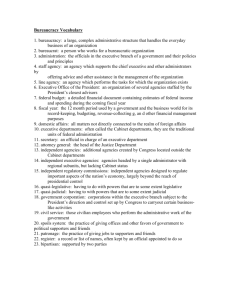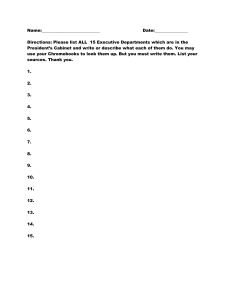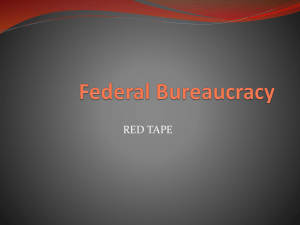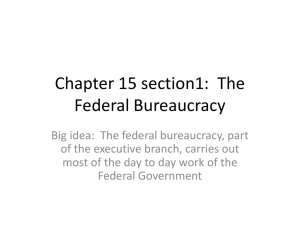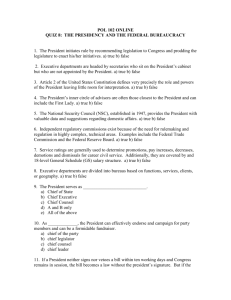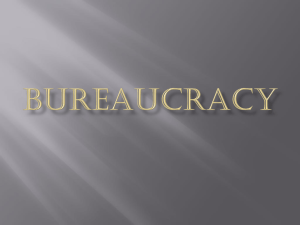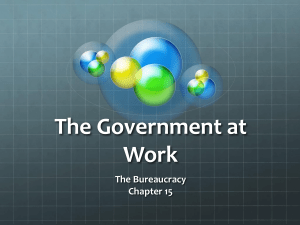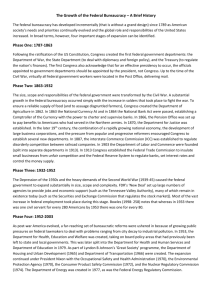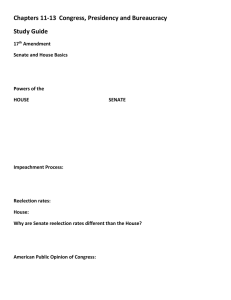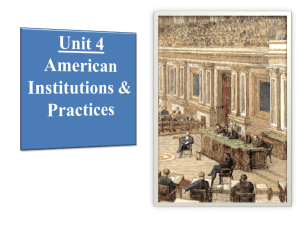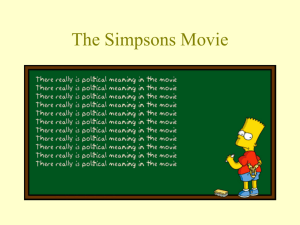Federal Bureaucracy: Key Terms & Definitions
advertisement
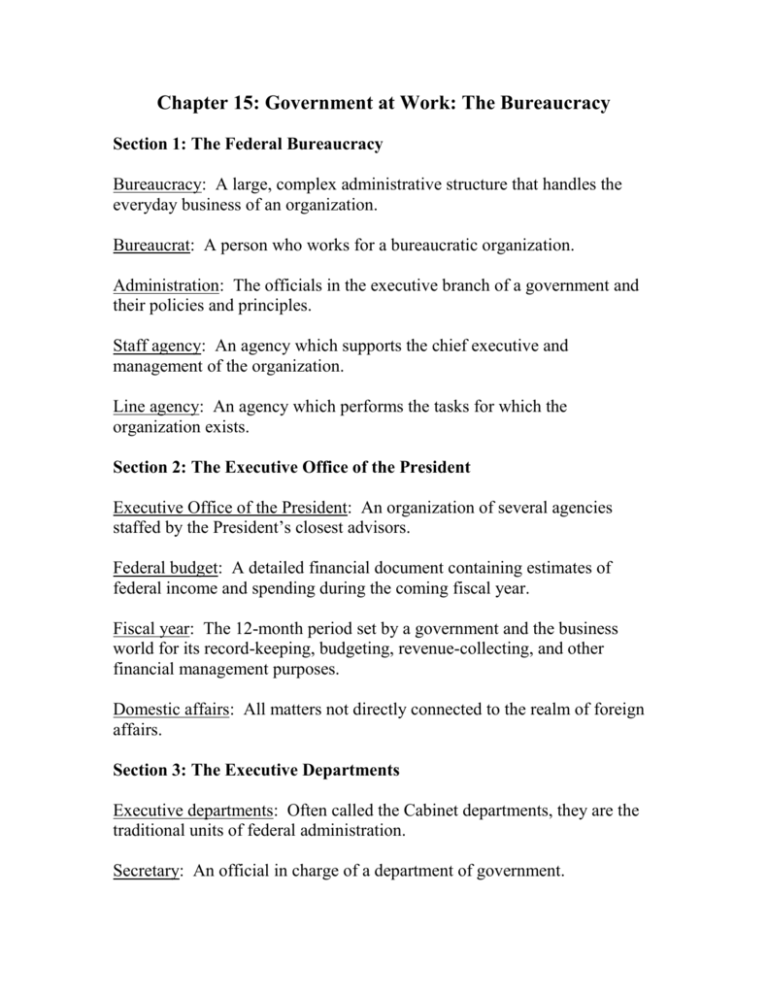
Chapter 15: Government at Work: The Bureaucracy Section 1: The Federal Bureaucracy Bureaucracy: A large, complex administrative structure that handles the everyday business of an organization. Bureaucrat: A person who works for a bureaucratic organization. Administration: The officials in the executive branch of a government and their policies and principles. Staff agency: An agency which supports the chief executive and management of the organization. Line agency: An agency which performs the tasks for which the organization exists. Section 2: The Executive Office of the President Executive Office of the President: An organization of several agencies staffed by the President’s closest advisors. Federal budget: A detailed financial document containing estimates of federal income and spending during the coming fiscal year. Fiscal year: The 12-month period set by a government and the business world for its record-keeping, budgeting, revenue-collecting, and other financial management purposes. Domestic affairs: All matters not directly connected to the realm of foreign affairs. Section 3: The Executive Departments Executive departments: Often called the Cabinet departments, they are the traditional units of federal administration. Secretary: An official in charge of a department of government. Attorney general: The head of the Department of Justice. Section 4: Independent agencies Independent agencies: Additional agencies created by Congress located outside the Cabinet departments. Independent executive agencies: Agencies headed by a single administrator with regional subunits, but lacking Cabinet status. Independent regulatory commissions: Independent agencies created by Congress, designed to regulate important aspects of the nation’s economy, largely beyond the reach of presidential control. Quasi-legislative: having to do with powers that are to some extent judicial. Quasi-judicial: Having to do with powers that are to some extent legislative. Government Corporation: Corporations within the executive branch subject to the President’s direction and control, set up by Congress to carry out certain business-like activities. Section 5: The Civil Service Civil service: Those civilian employees who perform the administrative work of government. Spoils system: The practice of giving offices and other favors of government to political supporters and friends. Patronage: the practice of giving jobs to supporters and friends. Register: A record or list of names, often kept by an official appointed to do so. Bipartisan: Supported by two parties.
